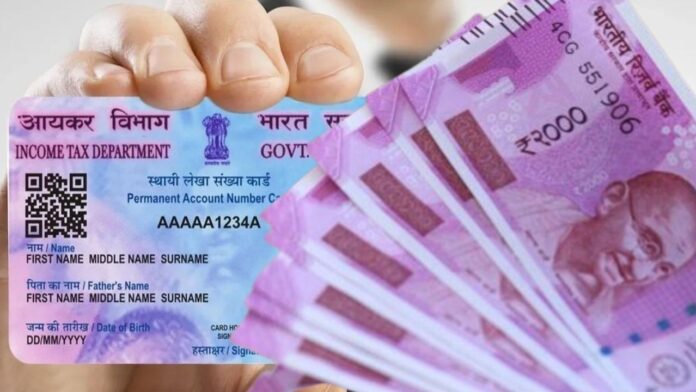PAN Inoperative Disadvantage: PAN card is the most important document related to money transaction. Through PAN, the Income Tax Department keeps track of the economic transactions of every citizen. If the PAN is deactivated, about a dozen transactions related to rupees will come to a standstill.
New Delhi: Permanent Account Number (PAN) is issued by the Central Government for financial information and identification of people. PAN card is the most important document related to money transaction. Through PAN, the Income Tax Department keeps track of the economic transactions of every citizen. The Income Tax Department had set June 30 as the last date to link PAN with Aadhaar, users who have not linked PAN, their PAN has become inactive after July 1. A fine of Rs 10,000 has been fixed for using an inactive PAN. At the same time, if PAN is deactivated, users will not be able to do 13 types of work related to rupee transactions.
According to Dr. Suresh Surana, founder of business consultancy firm RSM India, there is a provision of transaction in Rule 114B of the Income Tax Act, in which every person is required to give his PAN number. In this, it is mandatory to give PAN for 18 types of transactions. Transactions will face challenges when PAN is inoperative.
These 13 financial transactions cannot be done when PAN is inactive
- According to the Income Tax Department website, a person having an inoperative PAN cannot do financial transactions.
- Account opening facility will not be available in banking company or co-operative bank.
- Will not be able to apply for issue of credit or debit card.
- Cannot open demat account with any Depository, Participant, SEBI or any other person.
- Will not be able to pay an amount of more than Rs 50,000 at a time to any hotel or restaurant.
- Will not be able to pay more than Rs 50,000 for travel abroad or purchase of any foreign currency.
- An amount of more than Rs 50,000 cannot be paid to a mutual fund for unit purchase.
- No amount exceeding Rs 50,000 shall be paid to a company or institution for obtaining debentures or bonds issued by it.
- An amount of more than Rs 50,000 cannot be paid to get the Reserve Bank of India bond.
- Cash deposits with any bank or NBFC cannot exceed Rs 50,000 in a day.
- Cash payment of more than Rs 50,000 will not be allowed in a day for purchase of bank draft or pay order or banker’s check from any banking company or co-operative bank.
- Payment to the insurer as life insurance premium shall not exceed Rs. 50,000 in a financial year.
- No sale or purchase of shares of a company not listed on a recognized stock exchange will be possible.

